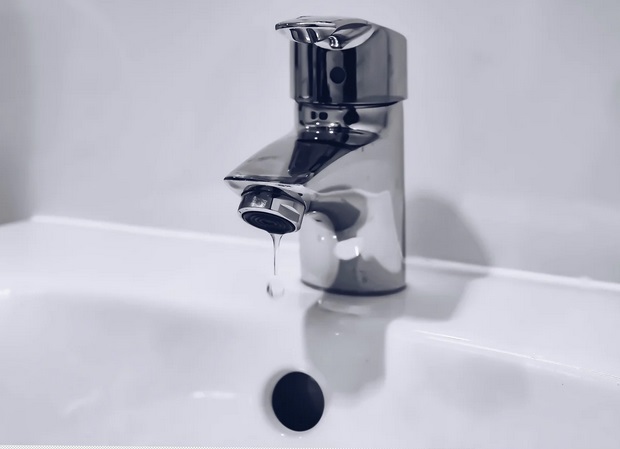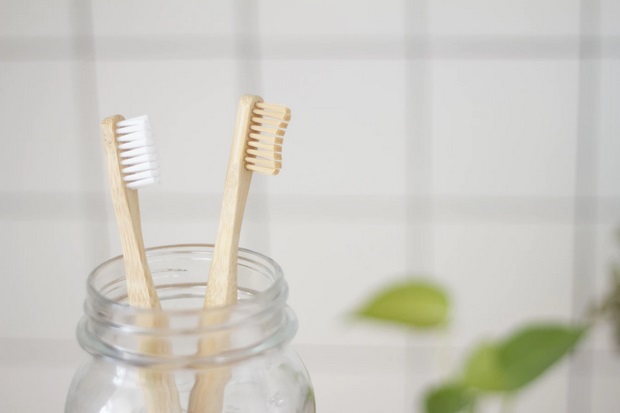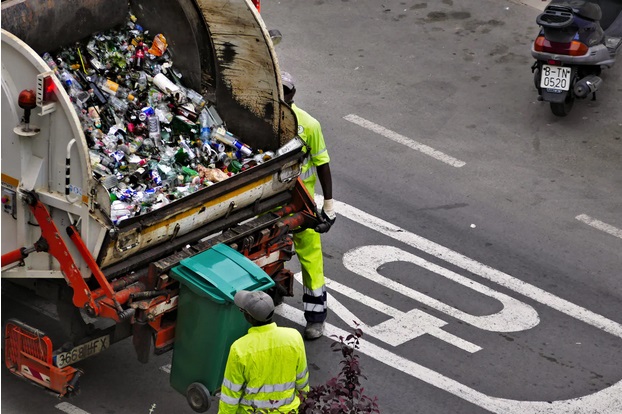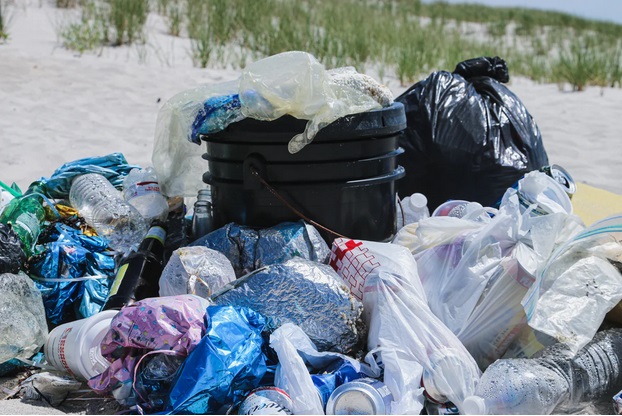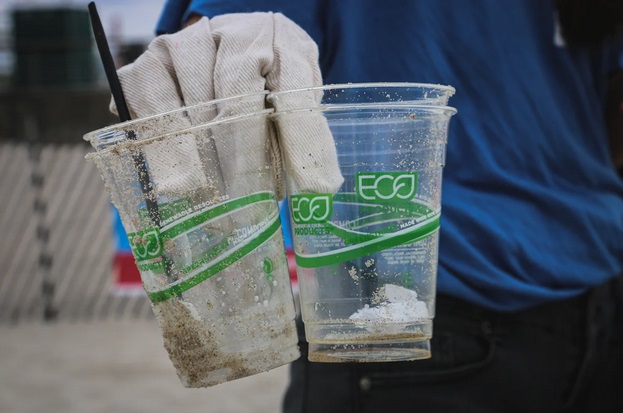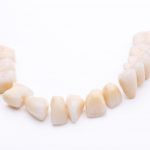What You Need to Know About Eco-Friendly vs. Traditional Dental Hygiene
The average American will use over 300 toothbrushes throughout their life, and plenty more tubes of toothpaste, floss dispensers, and jugs of mouthwash. When finished, they’re tossed in a landfill to rot for hundreds of years because most products are, unfortunately, not biodegradable.
Now consider the population of New York City alone (8.6 million), and multiply it by 300. The result is over two and a half billion toothbrushes thrown into a landfill—in only a single city. Although we all have to take care of our pearly whites, the downside is that single-use plastic pervades virtually every aspect of our dental care routines.
Fortunately, there are steps you can take to reduce your waste footprint and help improve the environment. Read on to find out how you can incorporate eco-friendly dental hygiene habits into your daily routine, and discover whether it’s worth the effort.
Eco-Friendly Dental Hygiene Practices
Want to make an immediate change for the better in your dental hygiene routine? Below, we’ve listed a handful of our favorite tips and tricks for cutting back on needless waste and reducing your plastic footprint.
Turn The Tap Off
When you’re brushing your teeth, don’t forget to turn off the tap to conserve water. All it takes is a slight turn of the wrist to potentially save hundreds of gallons of water every month, depending on how long and how frequently you brush.
Although many of us were taught as children not to brush our teeth with the taps running, roughly 33 percent of adults fail to turn off the tap while brushing. British authorities estimate that this bad habit costs the global water supply about 24 liters per day for every person who leaves the rap running.
Choose Biodegradable Floss
Most commercial dental floss from the drug store is not biodegradable, which means it sits idly in a landfill. To cut your eco-imprint back, try opting for biodegradable dental floss, which can be found at select department stores and boutique retailers.
Use A Floss Handle
A floss handle can help you reduce the amount of dental floss you use. When using a plastic dispenser, it’s not uncommon for the user to pull out way too much floss than they need. Whatever excess floss is removed from the dispenser ends up in the garbage.
To reduce the amount of floss you use, opt for dental floss with a handle. Although some companies, such as GUM, manufacture bundles of handle-floss, you can purchase a reusable floss handle to use over and over. Not only do these eco-friendly handles help reduce your carbon footprint, but they also back it easier to clean the hard-to-reach areas between your molars.
Try A Bamboo Brush
Plastic toothbrushes aren’t biodegradable. A recent report found that it takes roughly 450 years for a plastic toothbrush to degrade in a landfill fully. Thankfully, there’s another option that can help you cut back on unnecessary plastic waste—organic bamboo toothbrushes.
Most bamboo toothbrushes last several times longer than generic Colgate or GUM plastic brushes, and they degrade in only a few months. Switching to a plant-based bamboo toothbrush is one of the easiest methods of adopting an eco-friendly dental hygiene routine. Plus, durable bamboo brushes can save you a lot of money in the long-run by not buying a new one every few months.
Choose An Eco-Friendly Hygienist
Today, an increasing number of dental clinics are switching to sustainable, eco-friendly practices and products. Switching to a clinic that adopts environmentally friendly dental practices is one of the most important steps you can take to reduce waste and cut back on excess consumption.
However, it’s important not to fall for the commercial “greenwashing” trend. A report by the University of Colorado, Boulder, describes greenwashing as the practice of using misleading or deceptive environmental claims to promote an eco-friendly image. Far too often, businesses that market themselves as “green” do not follow environmentally sustainable principles in practice.
When shopping around for an eco-friendly dental hygiene clinic, we suggest inquiring with management about whether they use the following verifiably eco-friendly products:
- Hand-sewn towels instead of paper bibs
- Chlorine-free recycled paper
- Natural and biodegradable surface cleaners
- Zero-VOC paints
- Reusable autoclave wraps
- Dry vacuum pumps
Benefits of Eco-Friendly Dental Hygiene
There’s a lot to gain from eco-friendly dental hygiene practices. We’ve listed a handful of the advantages of eco-friendly dental hygiene below.
Save The Landfill
With billions of plastic toothbrushes produced every year, it’s critical that we all do our part to reduce the number of brushes that are tossed in the trash. Switching to biodegradable bamboo-constructed toothbrushes helps spare landfills of unnecessary plastic toothbrushes. Plus, the average bamboo brush lasts several times longer than its plastic counterpart.
Keep Your Mouth Chemical-Free
Plastic toothbrushes are loaded with potentially harmful synthetic chemicals such as bisphenol-A (BPA). Bamboo toothbrushes are either 100 percent natural or certified organic, which requires them to be BPA-free.
Protect the Oceans
Much of the single-use plastic that we rely on every day ends up floating in the Pacific Ocean. By cutting back your plastic consumption, you can save the lives of marine animals who mistake the plastic for vegetation and choke on it.
Save Your Money
Eco-friendly dental hygiene doesn’t have to cost you anything—in fact, it can even save you money. Bamboo brushes and handle-based dental floss reduce the amount of waste you generate, which means your dollar can be stretched further before you purchase a replacement.
Drawbacks to Eco-Friendly Dental Hygiene
There are a couple of disadvantages or annoyances that come with adopting an eco-friendly dental hygiene routine—we’ve listed them below.
Beware of Greenwashers
More dental clinics and product manufacturers tout their environmentally-friendly principles, but few brands and companies are truly sustainable. Scrutinize product labels for synthetic chemical additives like BPA, ignore “green” products with excessive plastic encasings, and ask your dental clinic about the specific sustainable practices they follow.
Requires Consistent Time and Effort
An eco-friendly dental hygiene routine requires you to spend some time and effort in researching products and clinics. However, it’s well worth the investment considering the cost savings, health benefits, and guilt-free conscious that comes with protecting the environment.
Ready To Reduce Your Waste Footprint?
Switching to eco-friendly dental hygiene products and dental clinics can help you save money, improve your oral health, and protect the environment. Consider making the switch today to see for yourself how you can benefit from environmentally-conscious dental hygiene.


